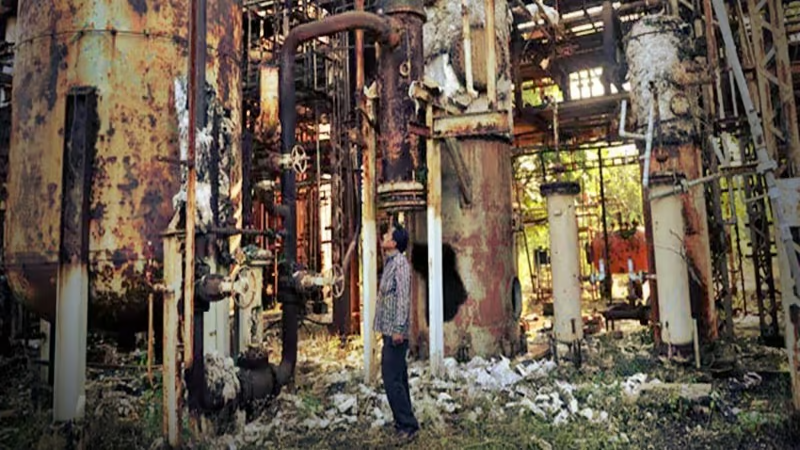
Bhopal: After four decades, toxic waste stored at the Union Carbide India Limited (UCIL) site in Bhopal has been successfully transported to the Pathampur dumping site in Dhar district, approximately 30 km from Indore.
On Wednesday, a convoy of 12 container trucks carrying around 337 metric tonnes of chemical waste departed from Bhopal to Pithampur, escorted by tight security from local authorities and police. A green corridor was established for the 250 km journey between UCIL and Pithampur.
The Bhopal gas tragedy, which occurred on the night of December 2-3, 1984, involved a catastrophic leak of highly toxic methyl isocyanate (MIC) gas from the Union Carbide pesticide plant, resulting in the deaths of at least 5,479 individuals and leaving many others with severe and lasting health complications. This incident is regarded as one of the worst industrial disasters globally.
On December 3, the Madhya Pradesh High Court issued a four-week deadline to ensure the toxic waste’s removal, criticizing the authorities for their prolonged inaction and warning of contempt proceedings if the order was not executed.
Since Sunday, over a hundred workers have been packing the waste in 30-minute shifts, undergoing health checks and taking breaks at regular intervals.
The 12 specialized containers used for transporting the toxic waste have been constructed in accordance with Central Pollution Control Board (CPCB) standards. They are designed to be leak-proof, fire-resistant, and equipped with GPS tracking for constant monitoring.
According to Swatantra Kumar Singh, Director of the Bhopal Gas Tragedy Relief and Rehabilitation Department, the facility in Pithampur is specifically designed for the safe incineration of industrial waste. A trial run in 2015, which involved disposing of 10 metric tonnes of UCIL waste under CPCB supervision, adhered to all safety regulations.
Singh noted that the treatment, storage, and disposal facility (TSDF) in Pithampur has been effectively incinerating waste from various organizations since 2006, following similar operational procedures as those at UCIL. He emphasized that emissions from the 2015 trial complied with national standards, and over the last decade, agricultural land for soybean and wheat in the Pithampur area has expanded.
The findings indicated no harmful substances were detected in the air or water post-disposal, and the remaining incineration residues were disposed of safely using a double composite liner system to ensure environmental protection.
